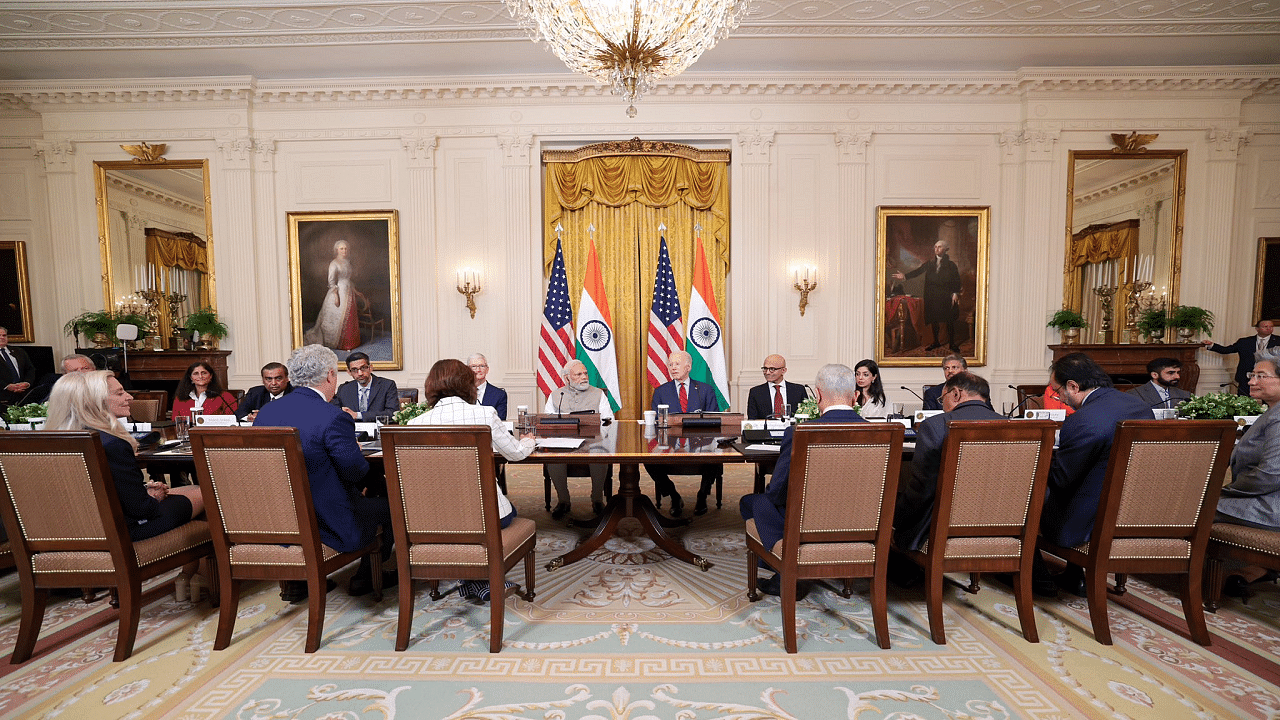
During his visit to the United States, Prime Minister Narendra Modi of India met with the CEOs of tech companies, including Apple, Alphabet, and Microsoft. The discussions took place at the White House and focused on exploring investment opportunities and addressing challenges in the Indian market. Notably, Apple CEO Tim Cook expressed his enthusiasm for the immense potential India offers, citing the recent opening of two retail stores in the country. Modi also met with Elon Musk, the CEO of Tesla, earlier in the week.
This visit marked Modi's first state visit to the U.S. since assuming office in 2014. Following the meeting, the White House announced a collaboration between Google and the Indian Institute of Science to work on open-sourcing speech data for artificial intelligence models. Additionally, OpenAI CEO Sam Altman was present at the event, and discussions with Modi centred around potential collaborations in the field of artificial intelligence.
Hemant Taneja, the CEO of General Catalyst, a venture capital firm, attended a roundtable and expressed his intention to align efforts to streamline technology transfer rules between the U.S. and India. Taneja highlighted the importance of fostering increased cooperation between the two countries, particularly in the face of the ongoing digital tensions with China.
At the White House today, @POTUS @JoeBiden and I met top CEOs associated with tech and innovation to explore ways in which technology can fuel India-USA relations. Harnessing tech for societal betterment is a common goal that binds us, promising a brighter future for our people. pic.twitter.com/lpxCtuxmzq
— Narendra Modi (@narendramodi) June 23, 2023
Modi's visit also served as an opportunity for major semiconductor companies like Micron and Applied Materials to announce significant investments in India. Micron plans to establish a facility in Gujarat, Modi's home state, as part of the industry's broader effort to diversify the chip supply chain.
While India presents attractive prospects, American businesses face challenges related to accessing skilled labor and dealing with outdated labor laws when expanding their operations in the country. Regulatory uncertainty and difficulties associated with employee relocation or termination have been persistent concerns for U.S. companies.
While speaking with Raju Kapoor, the Director of Corporate Affairs, FMC India, he said "As FMC, it was an honour to be welcoming Prime Minister Modi to the US. Agriculture in India urgently needs new technological interventions. We, as FMC, have the relevant technologies across chemical, biological and precision Ag platforms to address the lower crop productivity levels in India. We look forward to a more responsive regulatory ecosystem that will help us make available these technologies for Indian farmers, faster."
Kenneth Juster, former U.S. Ambassador to India and now a distinguished fellow at the Council on Foreign Relations, remains optimistic, noting that India has committed to easing the business processes for foreign companies.
















